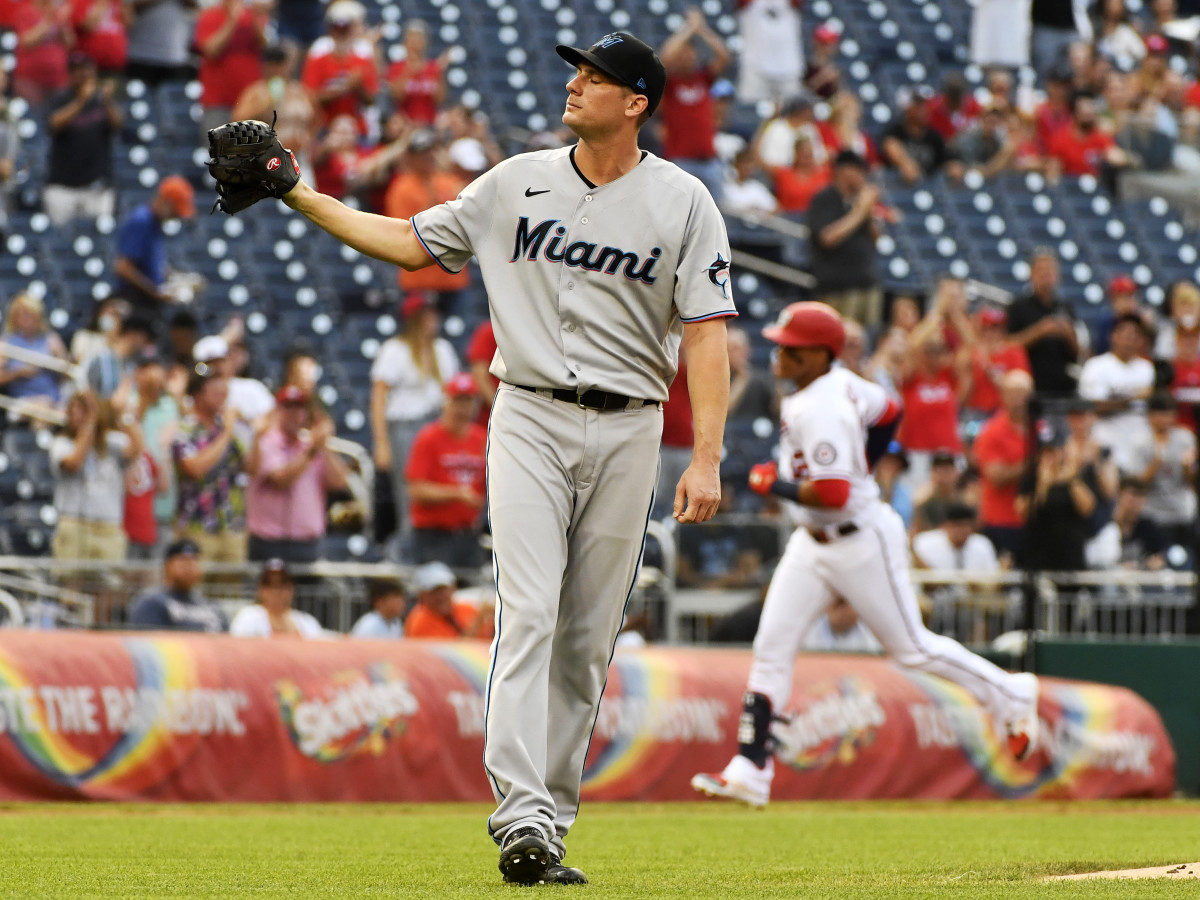A Taxonomy of Bad Days at Work

Welcome to The Opener, where every weekday morning you’ll get a fresh, topical column to start your day from one of SI.com’s MLB writers.
A ballpark is an office. This can be easy to forget—what with its other various positions as refuge and paradise and social cathedral—but it is a place where people go every day to do their jobs. Which means that it is a place where people have bad days at work.
A bad day at work takes many different forms. You are probably familiar with a few of them: There’s messing up a presentation that you’ve been preparing for weeks. There’s being asked to give a presentation you weren’t expecting to have to give. There’s screwing up a basic, routine task, and there’s screwing up a task that is neither basic nor routine but looked as if it should be at least feasible, and no, it wasn’t, not at all. There’s a bad day that’s your fault and a bad day that’s someone else’s fault and a bad day that’s no one’s fault.
Monday night offered a few bad days at work in baseball. Here, as demonstrated by Ross Stripling, Luis Guillorme and Ross Detwiler, is a brief taxonomy:

1. The Unraveling
Sometimes it’s all just wrong. It starts bad, it ends bad, everything in between is bad.
The first thing is usually something small—something unserious, a cup of coffee spilt, or an email sent in error. But it sets the tone, it puts you on edge for further slip-ups, and it soon becomes a helpless spiral. Any optimism about your ability to get back on track begins to feel cruelly misplaced. Just a garbage day—irredeemable. You leave as soon as you can.
Ross Stripling started for the Blue Jays on Monday. He gave up a leadoff double and a two-run home run before managing to record his first out. And then it got worse. He allowed a walk, a double, another walk, a grand slam. Finally, he was pulled—six runs, two homers, 1/3 IP. Just a garbage day—irredeemable. He left as soon as he could.
2. The Fill-In
This is not supposed to be your job. It’s not that different from your job, and you’ve done it before—you’ve done it pretty well, even!—but it’s still not your job, and you didn’t enter this week expecting to have to do it.
But then someone calls out sick. Someone has to fill in, and, oh, wow, looks like it’s going to be you. Which should not be an issue! You’ve done this before. But everything looks so different from this side of the office. It’s almost the same, but it’s not, and suddenly all of the simplest things feel difficult. You know that no one is expecting you to be as good as the person whose position you’re filling. But this lack of expectation holds its own curious form of pressure—why don’t they think you can be that good?—and this difference, the gap between the job you are doing and the job that is typically done here, can suddenly feel big enough to swallow you whole.
Mets shortstop Francisco Lindor is out with an oblique strain. His position was taken over Monday by third baseman Luis Guillorme—typically a good fielder, and one who has played a bit of shortstop in the past, generally without issue.
He had three errors in the first two innings.
E6, E6, E6 • Luis Guillorme, filling in for Francisco Lindor, commits three errors in the first two innings pic.twitter.com/bJ5xhgx2vG
— MLB Errors (@mlberrors) July 20, 2021
N.B. Guillorme’s bad day at work went on to become much better. He benefited from not one, but two of the best ways to salvage a bad time such as this. The first: His mistakes happened early on and were over well before the midpoint of the workday. The second: The rest of the day became a weird extended fever dream with mistakes all around and, somehow, eventually victory for his entire workplace. Who has time to dwell on errors from the first two innings when you later have this and this and this to consider?

3. The Return
So you’ve moved on. You have a new job in a new office, and all of your workdays, both good and bad, happen there now. You don’t really think about the old place much—hell, so much time has passed that almost all of your old coworkers are gone, too. But you were there a long time. Wouldn’t it be nice to think that someone remembers that? It would. It would be nice to think that every once in a while, someone sees your name on some old training documents somewhere and thinks, oh, yeah, that guy.
But now you’re back! Just passing through—a sales pitch, a meeting, whatever, just for a few hours. And your old buddies don’t work here anymore, and your job isn’t the same as it used to be, and it doesn’t really matter how you do (or, at least, it doesn’t matter more or less than it does on any other day), but still. You’d like to do well, for a note of pleasant surprise to color the recognition in their oh, yeah, that guy. Wouldn’t it be nice?
Ross Detwiler started at Nationals Park on Monday for the first time since 2013. The former Nat is not a starter anymore; he has not been one consistently for years, but today was a bullpen game for his current team, the Marlins, and he was tasked with serving as the opener.
He faced 11 batters and allowed eight runs on seven hits—four of them homers. He grooved pitches so perfectly down the middle that it would have been almost an insult not to drive them out of the park. Detwiler was pulled before he could record an out in the second inning.
Oh, yeah, that guy.
More MLB Coverage:
• How Vlad Guerrero Jr. Can Still Win AL MVP in the Year of Ohtani
• Second-Half Mysteries: Inside MLB's Thrilling Stretch Run
• Five ‘Angel and Devil’ Trade Deadline Conversations
• Three Big Questions Ahead of the MLB Trade Deadline
